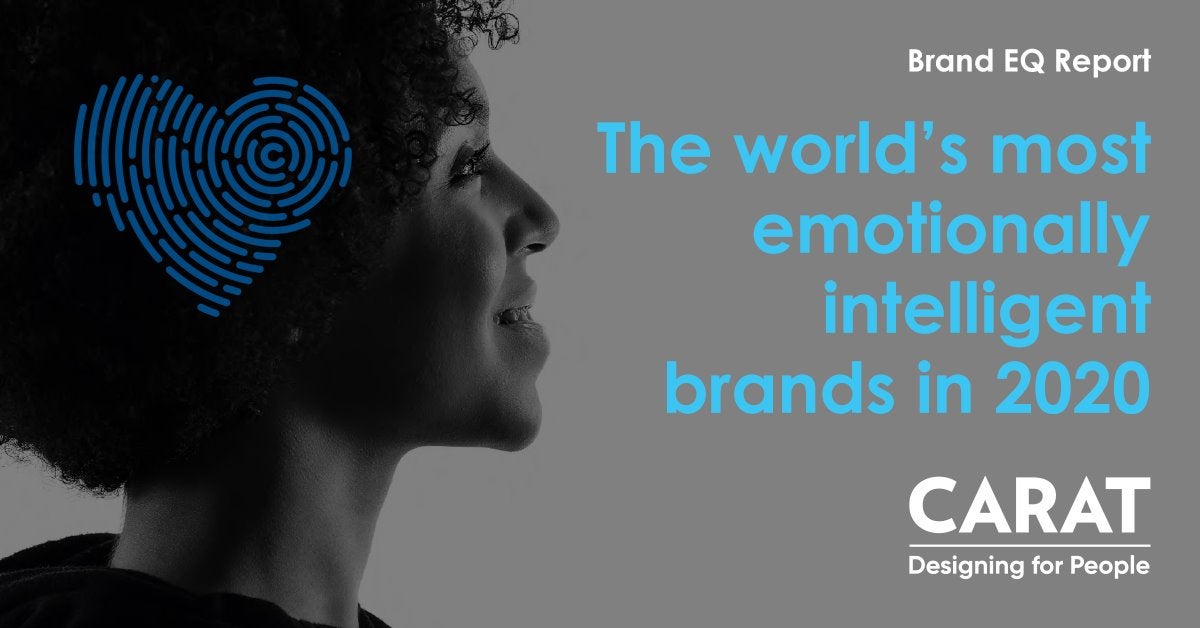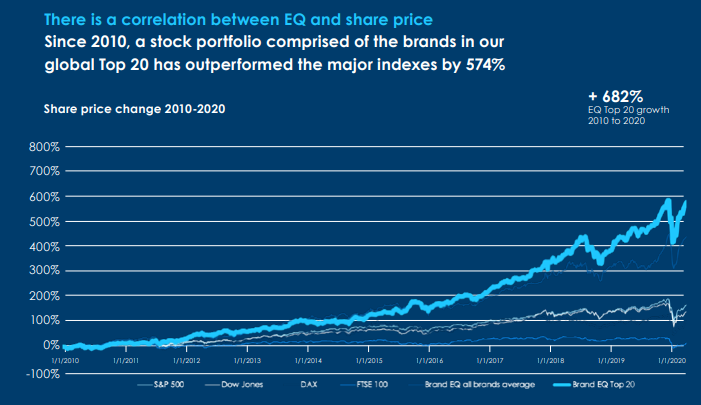
The Brand EQ Index is a proprietary piece of research ranking and revealing the most emotionally intelligent brands across the world.
Beginning in March 2020, Carat surveyed 10,000 people about their perceptions of 48 globally known brands in five categories: retail, food & drink, technology, automobile, and financial services.
The EQ Index brings a different lens to an age-old question: 'What are the traits of the most successful brands?' As our world becomes more technical and more complex, it can sometimes be incredibly insightful and rewarding to bring a fresh human perspective to help explain the world.
Applying the psychology of emotional intelligence is one of the ways we can design more rewarding experiences for people with brands. More than ever, marketing is a business rooted in human understanding and designing for people.
Key Findings of the Brand EQ Index Include:
- Technology and innovation do have a human face. One of the clearest findings of this study is the close relationship between ‘human outcomes’ and the importance of technology for a brand. If we look at the top 20 scorers, eight are heavily oriented around digital technology and innovation, whether that is in a ‘pure’ way (Google & Microsoft) or by redefining the way we purchase (Mastercard & Visa). This flies in the face of much of what has been argued by experts concerned with the de-humanising effects of tech.
- Technology brands dominate the top and the bottom. Google is the world's most emotionally intelligent brand in 2020. Microsoft, Samsung, Amazon and Apple also made it to the top 10.

- There is a strong correlation between high Brand EQ and financial performance. Over the past ten years, the average share price of the 20 most emotionally intelligent brands outperforms brands with a lower EQ by hundreds of per cents. High EQ brands also outperform key stock indices such as the Standard & Poors 500 and Dow Jones 30 by over 500 percentage points over the past decade.
- Not all tech firms excel at EQ: Facebook and Uber are among the least emotionally intelligent brands. Their poor performance is driven primarily by the lack of trust. Only 40% of respondents believe that Facebook behaves with honesty and integrity. For Uber, the figure is 37%.
- The most emotionally intelligent category is retail. Adidas, Nike, and Amazon reached top positions. Automotive and financial services brands have weaker-than-average emotional intelligence.
The report, which can be found on Carat’s revamped website, also dives deep into key learnings for brands, ranging from how they can engage younger audiences to how they should use their EQ chops to build trust with consumers.
Most recently named a leader amongst global media agencies by Forrester, Carat is consistently ranked the #1 media agency in the world with over 12,000 experts, operating across 190+ offices in 135+ countries. Carat delivers an unparalleled capability to unlock real human understanding to connect people and brands by designing powerful and engaging media experiences. Carat is a dentsu company and privileged to work with some of the most storied and innovative brands in the world.

